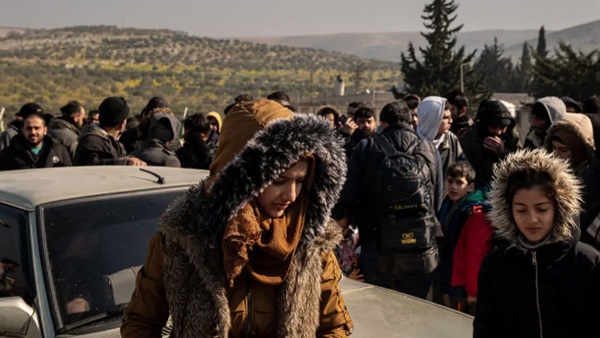Syrian refugees in Turkey rush to border crossings for temporary return home amid earthquake devastation

Thousands of Syrian refugees in Turkey have rushed to the
border crossing to return home. They are hoping to leave the earthquake zone in
Turkey and stay in Syria for three to six months before returning to Turkey.
The announcement was made by the Syrian administration of Bab al-Hawa, one of
the main border crossings from Turkey into an opposition-held territory in
northwestern Syria. However, Turkish officials could not immediately be reached
for comment.
Many refugees were seen carrying their belongings, including
suitcases, plastic bags and potato sacks holding whatever they were able to
salvage from their destroyed homes. While most of the refugees did not look
enthusiastic, they felt that it was their only choice. The death toll and
destruction were greater in Turkey, but the earthquake also left a large swath
of northwestern Syria in ruins.
Mazen Alloush, a spokesman for the Syrian side of the Bab
al-Hawa crossing, said that over the past few days, the local government linked
to that opposition group had met with Turkish officials. Turkey decided to
allow Syrians to go home temporarily and then return later, as it recovers and
rebuilds.
Last May, President Recep Tayyip Erdogan of Turkey announced
a significant expansion of his country’s plan to entice Syrian refugees back to
their homeland by building homes for them in Syria near the Turkish border. He
made the announcement amid an acute economic crisis in Turkey that has since
deepened and fueled widespread anger toward the large number of refugees in Turkey,
including Syrians and Afghans.
Returning refugees found Syria still bearing the scars of
war as well as the familiar pancaked roofs and buildings turned to rubble that
they witnessed in Turkey. Syrians left homeless by the earthquake in Syria are
struggling to find a place to live as the region suffers from an acute shortage
of tents and temporary housing.





